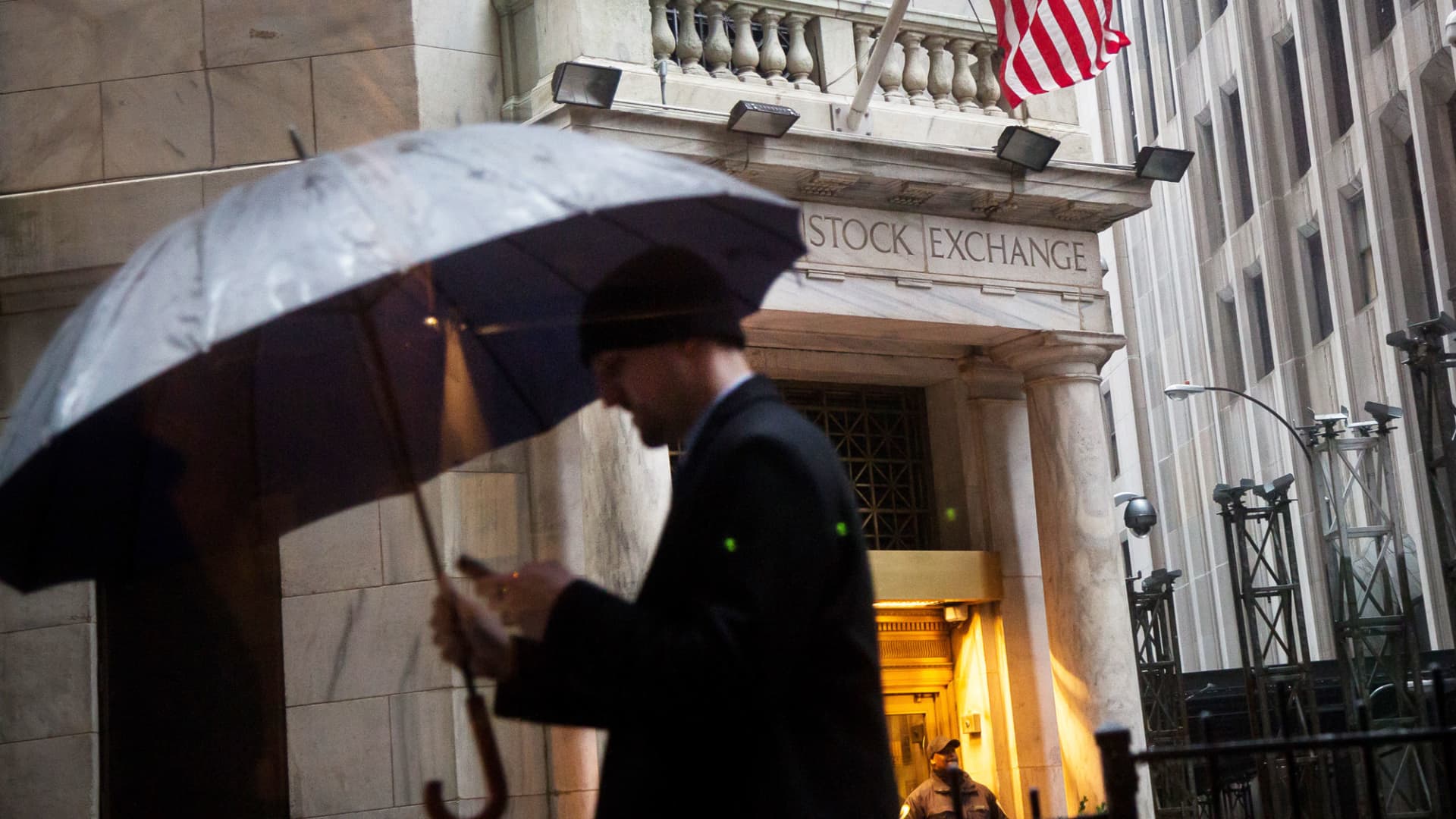A pedestrian carries an umbrella while walking along Wall Street past the New York Stock Exchange in New York.
Michael Nagle | Bloomberg | Getty Images
This report is from today’s CNBC Daily Open, our new, international markets newsletter. CNBC Daily Open brings investors up to speed on everything they need to know, no matter where they are. Like what you see? You can subscribe here.
What you need to know today
Delivering Alpha
Delivering Alpha, CNBC’s annual investor summit, just wrapped. Some highlights: Bill Ackman, head of Pershing Square Capital Management, thinks the 10-year U.S. Treasury yield could approach 5%; BlackRock fixed income chief Rick Rieder said the Federal Reserve will hike rates — even though he doesn’t agree with it; TCW Group CEO Katie Koch sees a recession coming for the U.S. economy.
Not just Chinese EV makers
Two weeks ago, the European Union launched a probe into subsidies given to electric vehicle makers in China. Valdis Dombrovskis, executive vice president of the European Commission, told CNBC on Thursday that while the scope of the probe “is still to be determined,” it “does not cover only Chinese brand electric vehicles.” That is, brands like Tesla and BMW are not off the hook.
Starshield for Pentagon
Elon Musk’s SpaceX won its first Pentagon contract for Starshield, a military-specific version of the company’s Starlink satellite internet system. The contract runs for a year and has a maximum value of $70 million, confirmed a Space Force spokesperson. Musk was previously accused of preventing a Ukrainian military operation on Russia by refusing to activate a Starlink network in the Crimea region.
[PRO] Shorted stocks in September sell-off
The September sell-off in stocks isn’t slowing down. So it makes sense to short stocks — and that’s exactly what hedge funds are doing. CNBC Pro combed through data from Nasdaq and the New York Stock Exchange to find out which stocks are attracting the most short interest.
The bottom line
A smattering of positive developments helped investor sentiment yesterday. But long-term prospects still look uncertain.
Yields on U.S. Treasurys pulled back slightly. At 4.589%, the 10-year yield’s still the highest it’s been in decades, but it’s actually down around five basis points from Wednesday. And it’s the direction of the move traders are keeping their eye on.
Likewise, oil prices retreated, giving investors — and the broader economy — a slight reprieve. U.S. West Texas Intermediate futures fell 2.1% to settle at $91.71 while Brent dropped 1.21% to $95.38.
That easing of pressure, however small, gave stocks some confidence to rise. The Dow Jones Industrial Average climbed 0.35% for its first positive session in three. The S&P 500 added 0.59% to hit 4.299.80, a hair’s breadth away from the key 4,300 level. The Nasdaq Composite jumped 0.83%, propelled by a rebound in tech stocks — shares of AMD, in particular, popped nearly 5% after Microsoft’s chief technology officer praised the chipmaker.
Investors, however, aren’t so sure about the long run. According to the latest survey by the American Association of Individual Investors, which measures retail investors’ sentiment for stocks over the next six months, overall bearishness climbed from 34.6% last week to 40.9%. That’s the highest since mid-May and over the historical average of 31%.
Renowned analysts and fund managers were similarly pessimistic at CNBC’s Delivering Alpha conference. Warnings of an impending recession, the 10-year Treasury yield approaching 5% and another rate hike by the Federal Reserve dominated the summit.
Of course, those are warnings, not immutable courses of action. If, for instance, the personal consumption expenditures price index, which comes out later today, satisfies the Federal Reserve that inflation is adequately tamed, rates might remain unchanged for the rest of the year and give stocks more room to breathe. But the mood, for now at least, is things are going to get worse before they get better.
— CNBC’s Scott Schnipper contributed to this report
Correction: An earlier version of this report misspelled Rick Rieder’s name.

